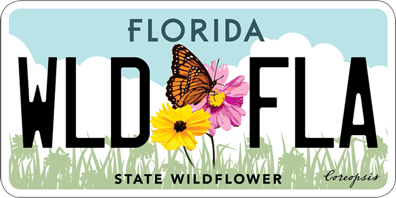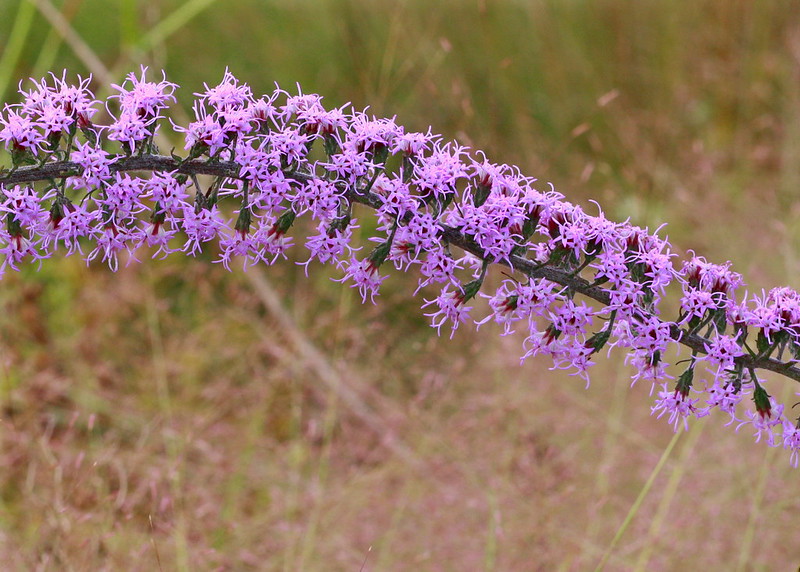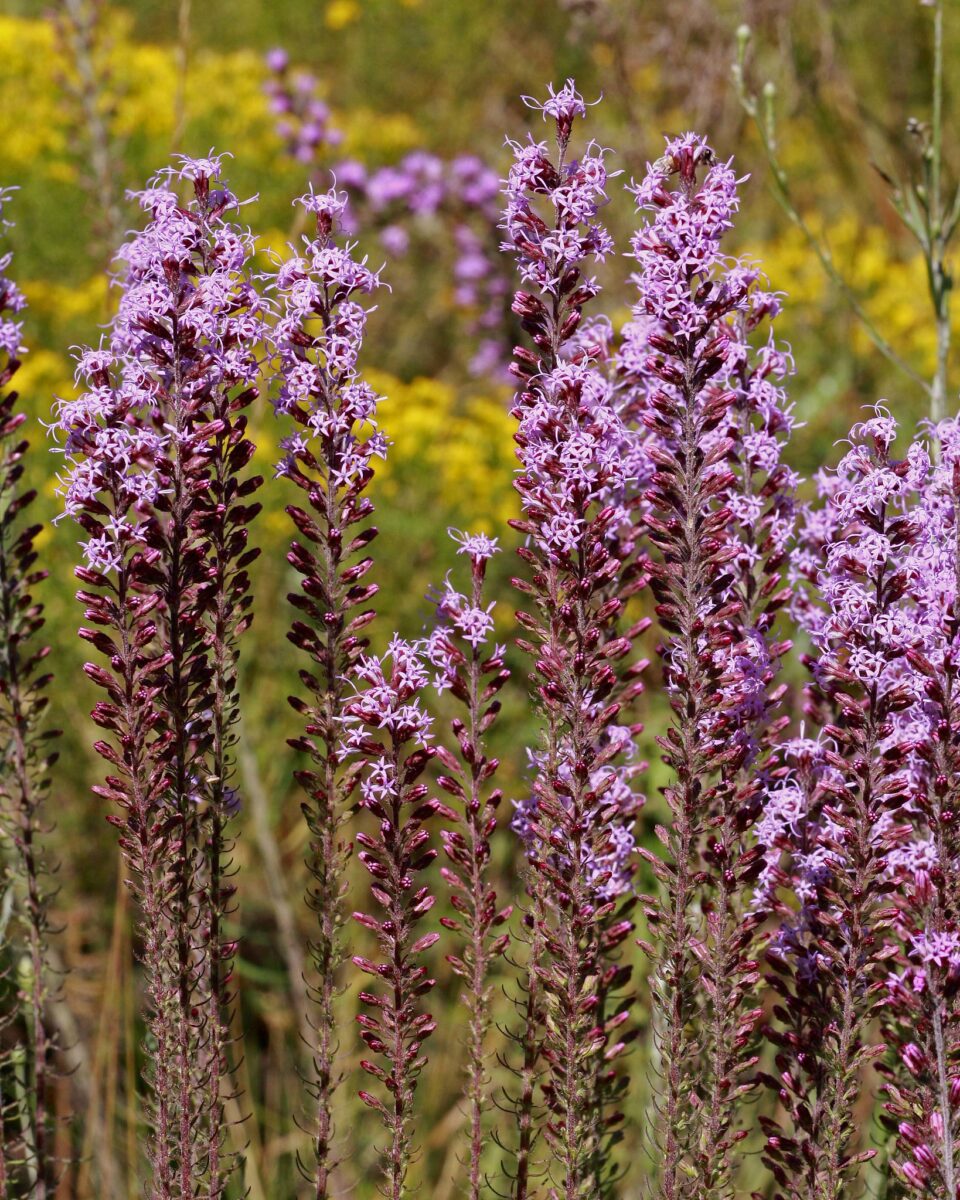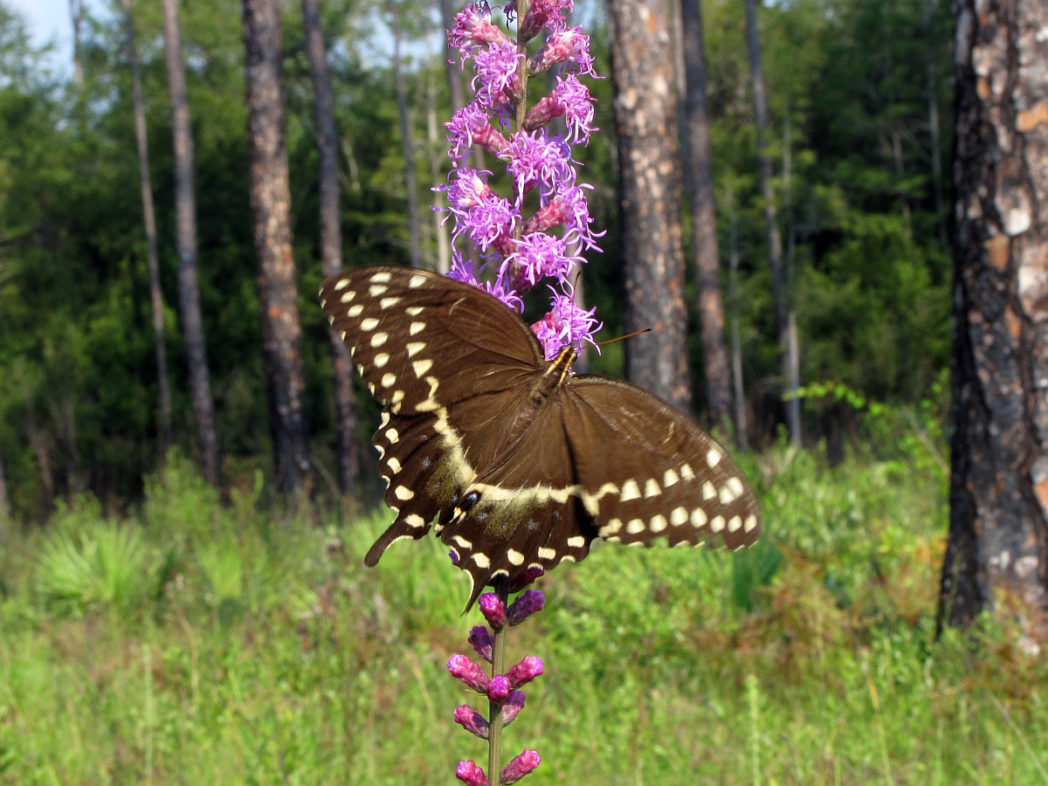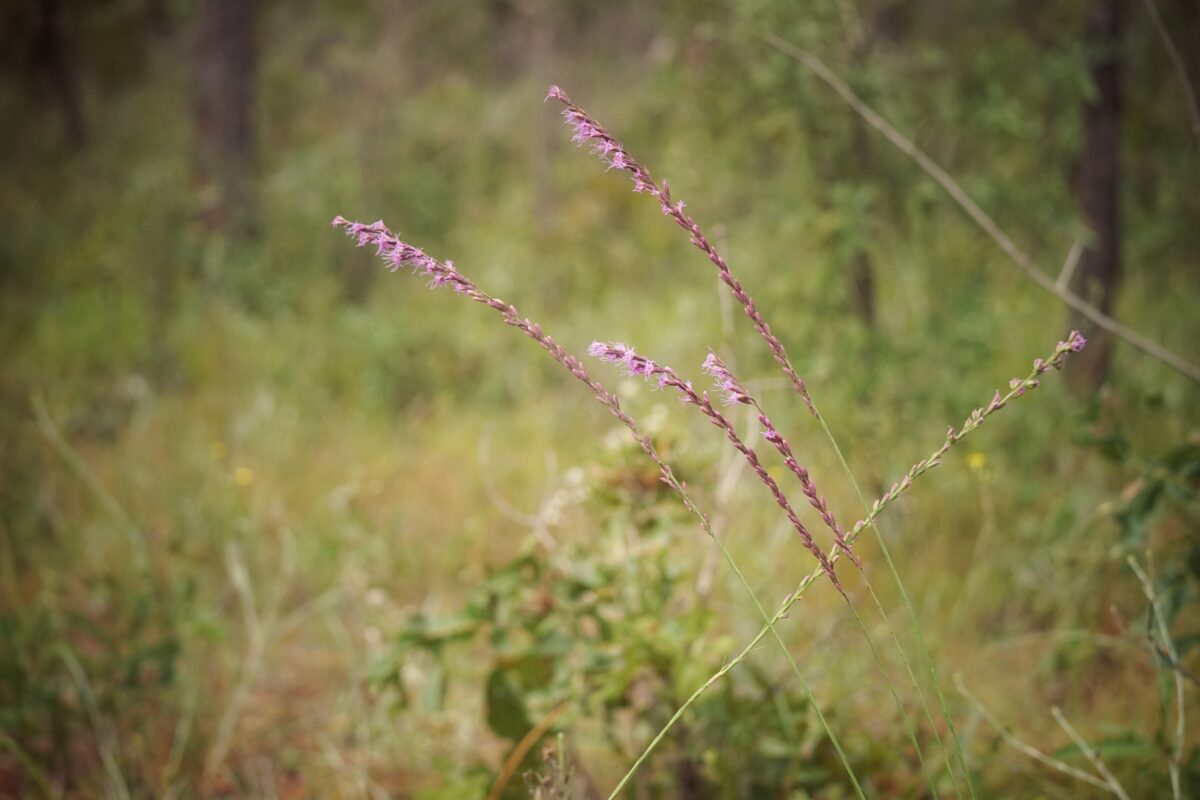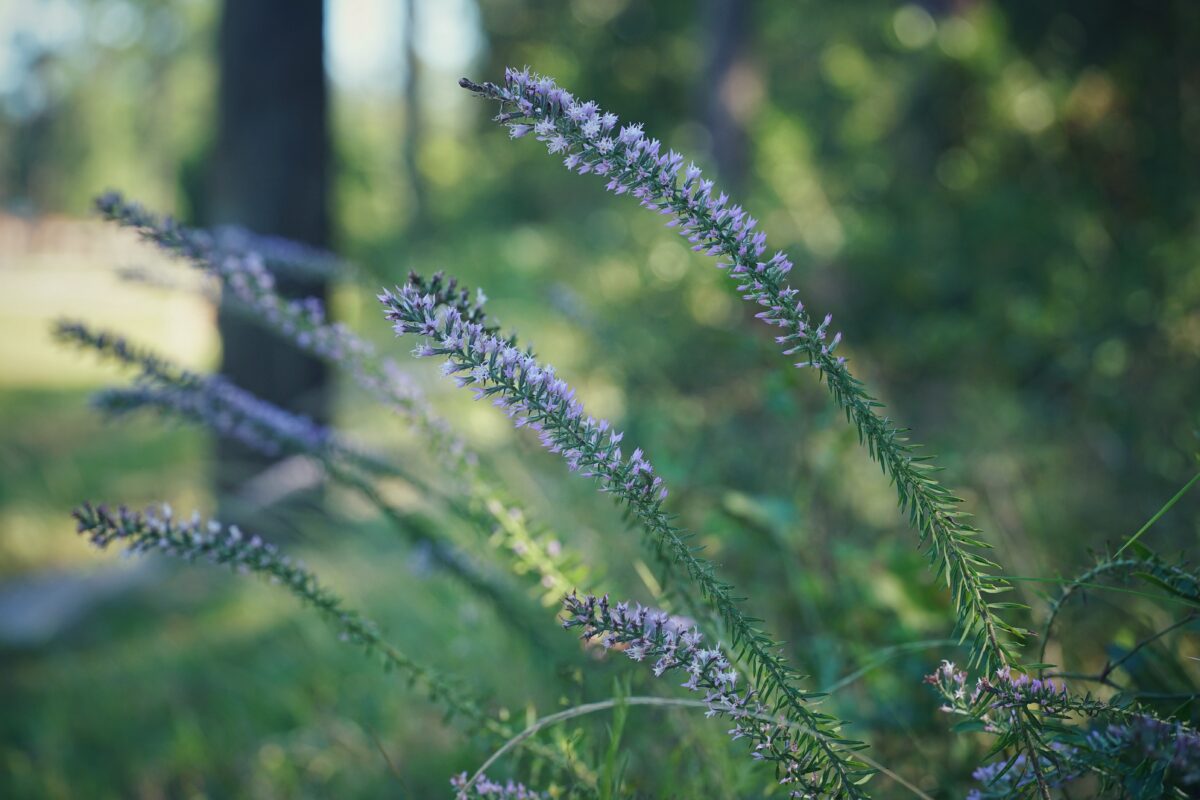Slender gayfeather
Pictured above: Slender gayfeather (Liatris gracilis). Photo by Mary Keim. Click on terms for botanical definitions. View post as a PDF.
Slender gayfeather (Liatris gracilis) is endemic to the Southeastern Coastal Plain, occurring predominantly throughout Florida and extending into southern Georgia and Alabama, with rare populations in Mississippi and South Carolina. It thrives in the well-drained sands of pine flatwoods, scrub and sandhills, putting on a fantastic late summer to fall display with its bright purple flower spikes. These blooms attract a wide variety of pollinators, including bees and butterflies.
In spring, basal rosettes of narrow, pilose leaves emerge from the winter-dormant plants, and flower stalks develop throughout the summer. The long spikes produce hundreds of small purple flowers, each held away from the main stem by a short pedicel, creating a broad and showy floral display. Seeds are born in dry, indehiscent cypselae.
Family: Asteraceae (Aster, composite or daisy family)
Native range: Throughout Florida
To see where natural populations of Slender gayfeather have been vouchered, visit florida.plantatlas.usf.edu.
Lifespan: Perennial
Soil: Well-drained sand
Exposure: Full sun
Growth habit: Up to 3-4 feet tall
Propagation: Seed
Florida regions of landscape suitability: North, Central, South
Garden tips: A wonderful addition to a mixed wildflower meadow, Slender gayfeather provides vibrant fall color and attracts many butterflies and bees. Its long, relatively heavy flower spikes are prone to falling over, so it benefits from being planted closely with other native wildflowers and grasses that can help provide support.
Plants are available from nurseries that specialize in Florida native plants. Visit www.PlantRealFlorida.org to find a nursery in your area. Seeds may be available from the Florida Wildflower Growers Cooperative at www.FloridaWildflowers.com.
Learn more about Slender gayfeather from the Florida Native Plant Society and the Institute for Regional Conservation.
For information on other liatris species, see these resources:
